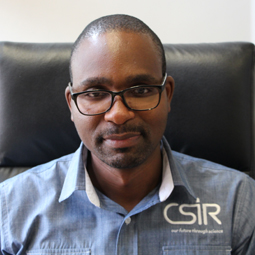South Africa wins International Student Cluster Competition in Germany
A team of six South African undergraduate students has taken first prize against 13 teams at the International Supercomputing Conference in Frankfurt, Germany. The spectacular success follows four days of working on a selection of tests and applications to optimise and run their computer cluster to demonstrate the performance of their chosen design. The competition took place from 16 to 19 June 2019.
A team of six South African undergraduate students has taken first prize against 13 teams at the International Supercomputing Conference (ISC) in Frankfurt, Germany. The spectacular success follows four days of working on a selection of tests and applications to optimise and run their computer cluster to demonstrate the performance of their chosen design. The competition took place from 16 to 19 June 2019.
The team of four University of Cape Town students and two University of the Witwatersrand students entered the very rigorous and fiercely contested competition following their success at the national round, where they beat nine other South African teams. The team was one of the few made up of 50% men and 50% women. Stephan Schröder, Dillon Heald, Jehan Singh, Clara Stassen, Anita de Mello Koch and Kaamilah Desai, under the supervision of team advisors and computer engineers David Macleod and Matthew Cawood of the CSIR’s Centre for High Performance Computing (CHPC), took on 102 members of teams from the United Kingdom, United States of America, China, Taiwan, Spain, Switzerland, Estonia and Singapore. The team took first place with the highest overall score for all the benchmarks they were given.
Competition sponsors
The team received a number of sponsorships for this competition including hardware, software and training. The total value of the South African team’s cluster was about R6 million and comprised sponsorships from Dell EMC, Intel, Nvidia and Mellanox.
Winning formula
According to the team advisor and manager of the CHPC’s Advanced Computer Engineering Lab, David Macleod, the South African team’s winning formula is to have dedicated students and sponsors. “Our sponsors are excellent and allowed the team to choose equipment without restriction or compromise. In turn the students put in a lot of time and effort before the competition and arrived at the competition well prepared,” he says.
“It really is excellent national progress. We have demonstrated consistently that talent and skills abound in our country. These teams come from different universities and provinces – showing that this is now national DNA,” says Dr Happy Sithole, Acting Director of the CHPC and Manager of the National Cyberinfrastructure System (NICIS).
The CHPC is an initiative of the Department of Higher Education, Science and Technology and is one of the three pillars of South Africa’s cyberinfrastructure system. It is supported by the South African National Research Network for transportation of data and the Data Intensive Research Initiative of South Africa for the management and curation of data. NICIS is managed by the CSIR.
Enquiries:
Ms Nox Moyake: Communications Practitioner
Cell: 072 02 66762
Email: nmoyake@csir.co.za
OR
David Mandaha: CSIR Media Relations Manager
Tel: 012 841 3654
Mobile: 072 126 8910
Email: dmandaha@csir.co.za


